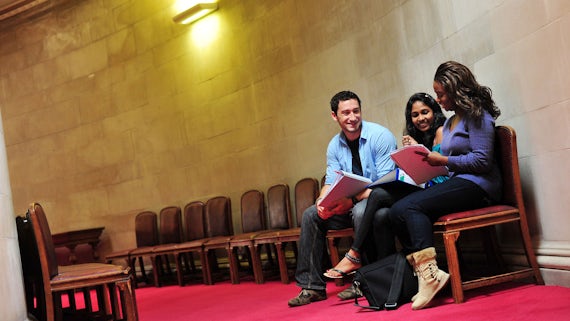Developing the smart cities of the future
17 December 2018

Cardiff University’s School of Geography and Planning welcomed a range of leading academics and industry stakeholders to Cardiff for its ‘City of the Future’ event on 7 December 2018.
The half-day seminar explored the concept and development of ‘smart cities’. The focus was on how digital tools and technologies, such as big data, connected sensors and cognitive computing, could help tackle major urban challenges and create a new city of the future.
Presentations from leading academics looked at definitions of smart cities and the practical, ethical and political issues around applying digital technology. They focused on three thematic areas: The Productive City; The Inclusive City; and the Resource-Efficient City.
- Duncan Wilson, Professor of Connected Environments at The Bartlett Centre for Advanced Spatial Analysis, University College London, drawing on his applied research, demonstrated that the understanding how and why to apply digital technology in the urban environment had changed.
- Chris Rogers, Professor of Geotechnical Engineering at the University of Birmingham, defined the smart city as a sustainable city, explained value-capture in that context and presented decision-making frameworks for urban interventions.
- Elena Simperl, Professor of Computer Science at the University of Southampton, examined crowd-sourcing as a tool for understanding cities and interacting with them.
- Wendy Tipper, Associate Director Transformation at Arup, and Isabelle Bignall, Chief Digital Officer at Cardiff Council, set out how business and city administrations were using ‘smart’ solutions to urban problems and spoke of how their sectors could collaborate more effectively with academia.
Following the presentations, Peter Madden, Professor of Practice in City Futures at the School of Geography and Planning, joined the speakers for a panel discussion. They examined the challenges and barriers inhibiting collaboration between business, government and academia and considered ways to resolve them. The panel also addressed some of the ethical, social and political debates around smart cities and pervasive digital technology.
Drawing the event to a close, Professor Rob Huggins, Director of Research at the School, explained how the presentations and discussion would inform the future priorities of the Cities Research Centre. Read more about the Centre.
Share this story
The School applies critical thinking and practical knowledge in solving economic, environmental and social problems to address the grand challenges faced by human societies and places today.


